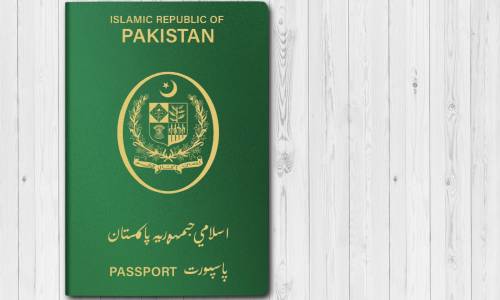Islamabad: The Directorate General of Immigration and Passports, operating under the Ministry of Interior, has initiated the issuance of electronic passports (e-passports) from all passport offices across Pakistan.
The introduction of e-passports was initially rolled out in the federal capital, Islamabad, in the month of June. During the launch event, the then-interior minister, Rana Sanaullah, revealed that this service, which was previously accessible solely to diplomatic and governmental personnel, would be progressively extended to residents of Islamabad initially, and subsequently to residents of other regions.
The directorate utilized X, formerly known as Twitter, on July 25th to announce a significant milestone – the successful printing and dispatch of the first-ever passport application submitted through the Inland Online Application process.
In the latest development, the Directorate General has unveiled the fee structure for e-passports, which is detailed as follows:
- A standard 5-year e-passport featuring 36 pages will incur a fee of Rs 9,000.
- For those seeking an expedited 36-page e-passport, the fee is set at Rs 15,000.
- The cost of a regular 72-page e-passport amounts to Rs 16,500.
- Opting for an urgent 72-page e-passport requires a payment of Rs 27,000.
- The regular fee for a 10-year passport containing 36 pages stands at Rs 13,500.
- Individuals desiring an expedited 10-year passport with 36 pages will be charged Rs 22,500.
- A 72-page ten-year e-passport carries a standard fee of Rs 24,750.
- An urgent 72-page ten-year e-passport can be obtained for Rs 40,500.
Notably, the standard passport fees remain unaffected by the new fee schedule. The revised fee structure officially took effect from August 16, as announced by the directorate.
What exactly is an e-Passport?
An e-Passport stands as a highly secure travel document, featuring an electronic chip integrated into one of its pages. This chip serves as the repository for biometric details of the passport holder.
Enclosed within the chip are particulars that authenticate the holder’s identity, encompassing biometric information, personal data from the passport’s data page, a distinct identification number, and a digital signature.
Notably, e-Passports incorporate a contactless (NFC) chip, facilitating electronic reading. It’s noteworthy that Pakistan’s recently introduced e-Passports align with the standards set forth by the United Nations’ ICAO.
(Islamabad51-Newsdesk)














